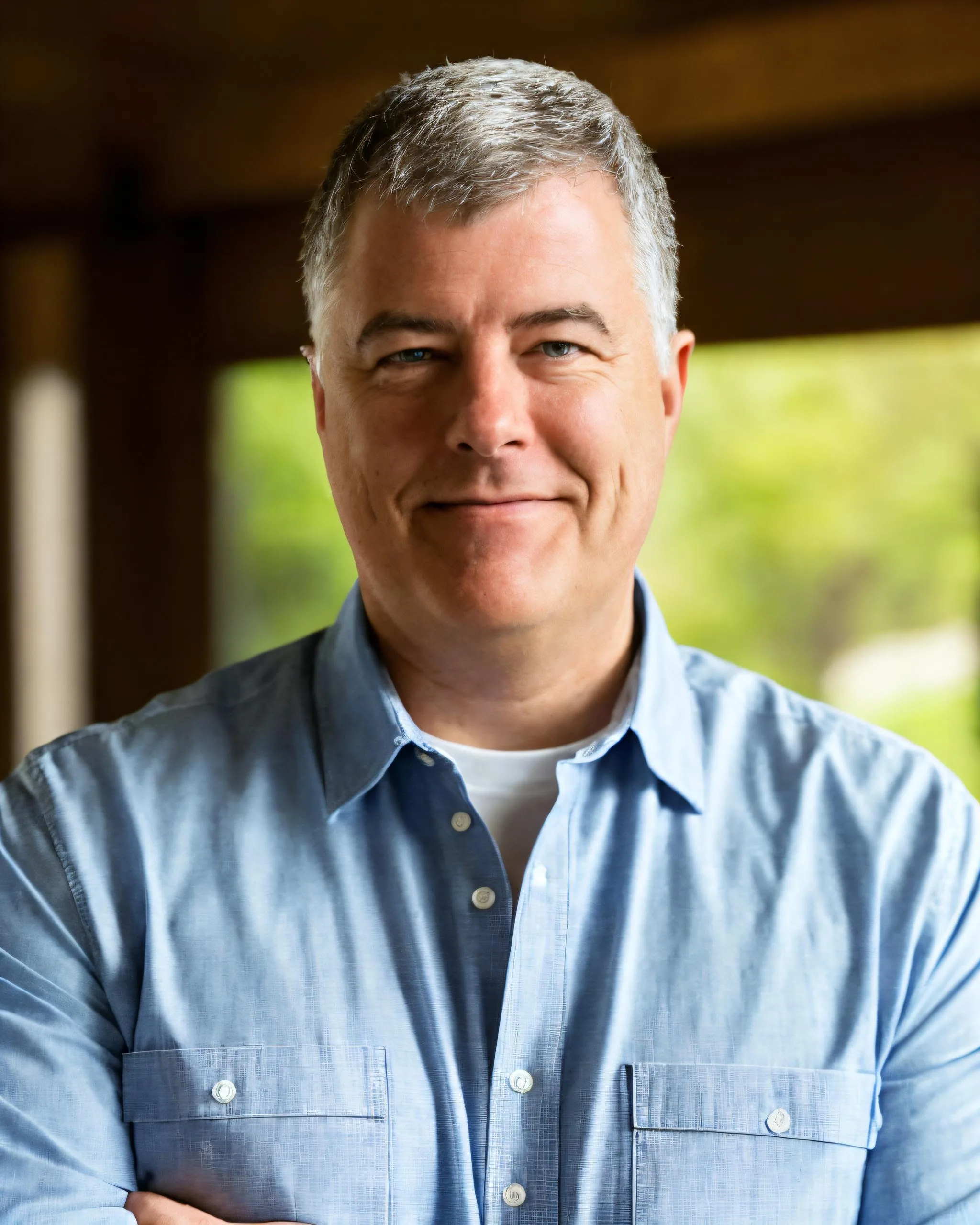For Brett Lovins, recovery isn’t just personal—it’s a mission to effect change in businesses by advocating for Recovery Friendly Workplace practices. The founder of Sober Curious Consulting, Brett has turned his 12-year recovery journey into a consulting business advocating for workplace change. You hear him say often, “It isn’t about prohibition or shaming anyone, and there are easy wins everywhere.”

His story began long before May 28, 2013—the day he became drug and alcohol free. But it was that date that marked a turning point, setting him on a path not only toward personal healing but also toward helping others. “A day doesn’t go by where I don’t thank my lucky stars that I found my way to recovery,” Brett says. “Now I protect it and hope I can be a beacon for others.”
Pivotal Moments
Brett’s recovery journey has been shaped by milestones both deeply personal and transformative:
- A wake-up call: Early in sobriety, Brett faced one of his first true tests. Just 23 days in, his boss urged him to take a celebratory shot of Uzo at a major event. “It was one of those moments that stick with you,” he recalls. “I’m certain my boss had no idea how dangerous a situation he had inadvertently put me in. How many other stories like that happen every day?”
- Turning pain into purpose: The loss of his high school friend Jeff Meyer to a fentanyl overdose was a defining moment. “Attending Jeff’s memorial, I knew I’d stayed quiet about my own recovery for seven years,” Brett says. That silence ended—and his advocacy work began.
- A bold move at work: After eight years at Cisco Systems, Brett became the lone voice advocating for recovery at a Fortune 500 tech company. What started as a personal initiative soon blossomed into a Recovery Friendly Workplace (RFW) movement that grew exponentially and had a profound impact on multiple aspects of Cisco’s culture.
Building a Recovery Friendly Workplace
At Cisco, Brett spearheaded efforts to make the company’s culture more inclusive and supportive of those in recovery. It started with forming an Employee Resource Group (ERG) focused on recovery—a groundbreaking step in a space where sobriety was rarely discussed.
“I went from knowing one other person in recovery to 150+ in just a week,” Brett shares. The ERG secured leadership buy-in, including a VP-level executive sponsor, and implemented tangible changes: from rethinking event planning (hello, robust NA beverage options and inclusive environments) to launching internal web pages with addiction resources and hosting expert-led webinars.
“We also scrutinized our Employee Assistance Program (EAP), ensuring it was as effective and recovery-friendly as possible,” Brett adds.
Amplifying Voices Through Podcasting
Brett also hosts a podcast that features guests in recovery, amplifying their stories and breaking down stigma. “Once I got over my own shame and stigma hurdle, I kept leaning into it,” he says. “My motivation remains the same—help a few people at a minimum, change society at the maximum.”
For Brett, storytelling is power. Each episode is a testament to resilience and proof that recovery is not only possible—it’s transformative.
The State of Recovery-Ready Workplaces
Although Brett has seen pockets of progress, he knows the movement is still in its infancy. “There are so few that I’ve come across that I feel like we are very, very early in this,” he says. “Even large, well-resourced HR teams often have little awareness of RFW initiatives—or the overwhelming statistics about addiction’s prevalence in the workforce and what to do.”
When it comes to barriers, Brett has seen obvious patterns:
- Misinformed: “People just don’t know the basics, the 101 of addiction. Shame and stigma keep it that way.”
- Fear: Of liability, of getting it wrong, of acknowledging the problem.
- Complacency: The fallback response of “We have an EAP” is a common one. Although great, this approach is often reactive rather than proactive.
- Leadership gaps: Many executives don’t yet see the value in investing in recovery readiness.
Why It Matters
Brett’s message to leaders is clear: this isn’t a niche issue. “It is in your workplace—guaranteed. And in the families of your employees too,” he says, pointing out that two-thirds of American families are affected by addiction.
He emphasizes that recovery-friendly changes don’t have to be massive to make a difference. “There’s low-hanging fruit everywhere,” Brett explains. “And the benefits are undeniable—cost savings, talent attraction and retention, employee and customer loyalty, safety, productivity. Small changes can lead to big wins.”
For companies that want to get started, Brett recommends two go-to resources:
- The Recovery-Ready Workplace Toolkit.
- Sean Daniel’s powerful YouTube video on the topic:
A Life Transformed
Today, Brett’s life is grounded in gratitude and simple joys. Married for 29 years, his wife—who has been by his side through it all—has even joined him on two podcast episodes. “She got a front-row seat to the progressive nature of my illness,” Brett says, “and recovery has made so many things possible, including the big dog – surviving.”
In his downtime, Brett is a self-proclaimed backyard naturalist and “bird-nerd,” a Dead Head who loves playing guitar and embracing a peaceful, early-to-bed, early-to-rise lifestyle. “Humility is one of my core values,” he says. “I don’t take myself too seriously—no one is better than anyone else.”Through Sober Curious Consulting, his podcast, and his advocacy, Brett remains steadfast in his belief that the Recovery Friendly Workplace movement can—and will—change society. And he’s here to help lead the way.
Share Your Story
This epidemic has given us one common experience: we have all become experts in our own way. At SAFE Project, we believe that we strengthen one another by sharing our stories. Whether you are in recovery, lost a loved one, or are making a difference in your community, you can help others on this journey. We’d like to hear from you.


